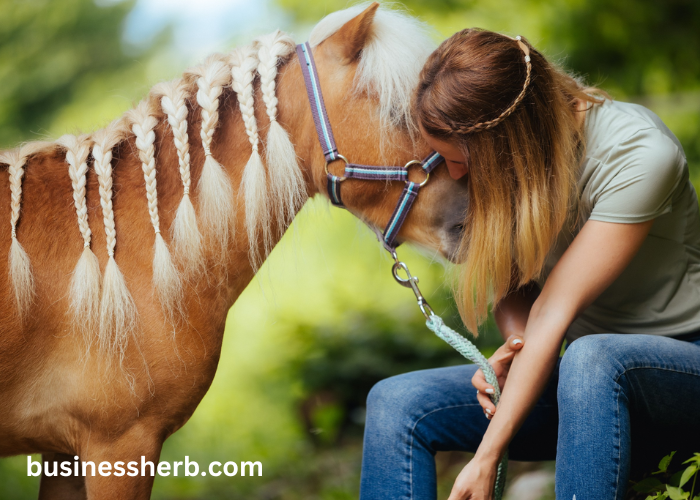Horses have been intertwined with human history for millennia, serving as vital companions in work, warfare, and leisure. These magnificent creatures, known for their grace, strength, and intelligence, require understanding and care to thrive in domestic settings. This article delves into the captivating world of horses, focusing on their behavior and the essential aspects of their care. Discover the latest courses and resources for casacourse. Enhance your knowledge and skills with our comprehensive online platform.
Understanding Horse Behavior
Horses are social animals that have evolved over millions of years. They possess a complex set of behaviors that are critical to their survival and well-being. Here are key aspects of horse behavior:
1. Herd Mentality: Horses are herd animals by nature. In the wild, they rely on the safety of the group for protection against predators. This herd mentality influences their behavior in domestic settings, making them highly social creatures that prefer the company of other horses or even humans.
2. Communication: Horses communicate through a combination of vocalizations, body language, and facial expressions. They use their ears, eyes, and nostrils to convey their mood and intentions. Understanding these signals is crucial for effective communication and handling.
3. Flight Response: As prey animals, horses have a highly developed flight response. They are prone to flee from perceived danger. This instinct can manifest in sudden, unpredictable movements, making it important for handlers to remain calm and assertive.
4. Learning and Memory: Horses have excellent memories and are capable of learning through repetition and reinforcement. They respond well to positive reinforcement training methods, which involve rewarding desired behaviors to encourage repetition.
Essential Aspects of Horse Care
Proper care is essential to ensure the health and happiness of horses. Here are some fundamental aspects of horse care:
1. Nutrition: A balanced diet is vital for a horse’s health. Horses primarily eat forage, such as grass and hay, which should make up the majority of their diet. Concentrates, like grains and pellets, can be added for additional energy and nutrients, especially for working horses. Access to clean, fresh water is also essential.
2. Shelter: Horses need protection from extreme weather conditions. A well-ventilated barn or shelter can provide relief from heat, cold, wind, and rain. However, horses also benefit from spending time outdoors, so access to a safe, spacious pasture is ideal.
3. Exercise: Regular exercise is crucial for a horse’s physical and mental well-being. It helps maintain their fitness, prevents obesity, and allows them to express natural behaviors. Exercise can include riding, groundwork, or simply allowing them to roam in a pasture.
4. Grooming: Grooming is not only important for maintaining a horse’s coat and hooves but also for building a bond between the horse and handler. Regular grooming sessions help to keep the coat clean, check for injuries, and ensure hooves are healthy and properly trimmed.
5. Health Care: Routine veterinary care is essential to prevent and treat illnesses. This includes vaccinations, dental care, and regular health check-ups. Hoof care by a farrier is also important to prevent lameness and other hoof-related issues.
6. Social Interaction: Horses thrive on social interaction, whether with other horses or with humans. Social isolation can lead to stress and behavioral problems. Providing opportunities for socialization is key to their mental well-being.
Conclusion
The majestic world of horses is as fascinating as it is rewarding. Understanding their behavior and providing comprehensive care are fundamental to ensuring these noble animals lead healthy, happy lives. By respecting their natural instincts and needs, we can build strong, trusting relationships with our equine companions, enriching both their lives and ours.

